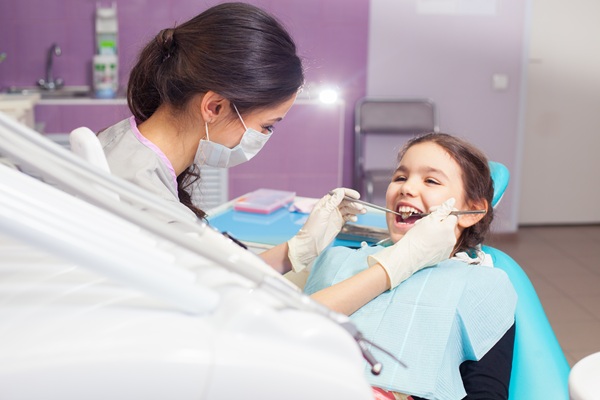3 Questions to Ask Your Pediatric Dentist About Children’s Braces

A pediatric dentist works with your child to treat their condition and teach them the importance of oral health from a young age. Misalignment and malocclusions are quite common in children and adolescents as their teeth develop. There are several reasons a child might require braces. Treating these conditions early on can help guide their teeth into proper alignment and enhance their appearance and oral function. Read on to learn more about children’s braces.
Questions to prepare a child for braces
Many children have crooked teeth or jaw and bite misalignment issues as their teeth grow and develop. Common oral health issues in children include crooked, overlapping, or overcrowded teeth or a "bad bite" known as a malocclusion. Malocclusions refer to overbites when the upper jaw protrudes over the lower jaw, while underbites refer to when the lower jaw protrudes over the upper jaw. Although children can benefit from being treated by a pediatric dentist for braces at any age, we recommend treatment once their permanent teeth start coming in (around age seven). This allows us to see their teeth and jaw placement and their development.
It is important for parents to discuss the treatment and its benefits with their children before seeking treatment. Prepare questions to ask the dentist and allow them to come up with their own. Common questions we receive include: What will my smile look like? What lifestyle changes will I need to make? Can I play sports? How long will my treatment last? How many dental visits will I need? A pediatric dentist can answer all of these questions and more during the initial consultation.
Questions about candidacy
During the first visit, we will conduct a physical examination and take necessary X-rays to examine the teeth, mouth, and jaw thoroughly. Some of the conditions we treat include:
- Being prone to biting the tongue, the roof of the mouth, or the inside of the cheek accidentally
- Breathing through the mouth
- Early or late loss of baby teeth
- Jaws that click or make other sounds
- Teeth that do not come together even when the mouth is shut completely
- Thumb-sucking or using a pacifier past the age of two
We will also ask the child questions about any symptoms they may be experiencing, whether they have difficulty chewing or swallowing, and if they ever hear a clicking or popping sound. These preliminary questions give us a better understanding of their condition and severity. We encourage patients to ask whether their case qualifies for orthodontic treatment and ask about alternative options if needed.
Questions about lifestyle changes
It is a good idea to discuss patients’ lifestyle and behavioral choices prior to treatment to understand the changes they may need to implement. Some questions we hear a lot include changes to diet, oral hygiene, and sports/physical activity. Patients can usually continue playing sports and other activities with their braces on. We will likely recommend or order that patients wear a mouthguard to protect their mouth and teeth while playing.
Book a consultation today
Braces treatment can help children and adolescents protect their teeth, improve their oral health, and enhance their appearance. Undergoing treatment at a young age saves them from dealing with extensive treatment during adulthood. Call our office at (925) 504-4011 to learn more or schedule an appointment.
To learn more about our services, visit https://parksidepediatricdentists.com or call our Concord office at (925) 504-4011 to schedule an appointment.
Check out what others are saying about our dental services on Yelp: Pediatric Dentist in Concord, CA.
Related Posts
Pediatric dentistry is an area of dentistry that focuses on the oral health of children. Starting good dental hygiene habits early in life is important. As the Centers for Disease Control and Prevention states, more than 50% of children under the age of nine have had at least one cavity in their baby teeth, and…
Dental crowns are important in pediatric dentistry. Each primary tooth is a living guide for the development of permanent teeth. But baby teeth can also suffer from decay. So restoring these teeth is important for the general health of your child. If you want to know if pediatric dentistry uses dental crowns, here are the…
Pediatric dentistry is the practice of providing preventive and therapeutic oral care to children under the age of 18. It is recommended that children begin seeing the dentist early, no later than the first birthday. Preparing your child for their appointment ahead of time helps to make it easier for everyone involved.A trip to a…
Nutrition is an important part of pediatric dentistry. Having balanced amounts of vitamins and minerals can strengthen and protect the teeth. Proper nutrients also fuel dental function. If you want to know how important nutrition is for your child’s oral health, here are the details from a pediatric dentistry professional.Children are still developing. They need…


